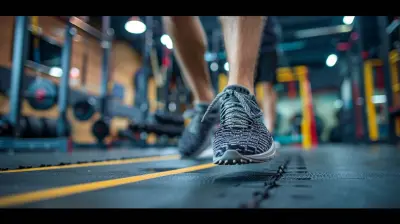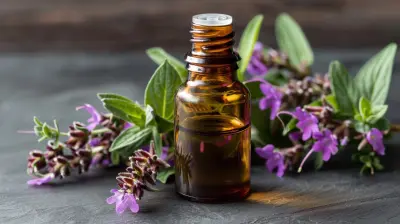Eye Health: Preserving Your Vision as You Age
9 August 2025
Let’s face it, aging is a rollercoaster. One minute you're doing yoga like a pro, and the next you're squinting at the microwave wondering if it says "1:15" or "LOL." Our eyesight, much like our memory of where we left our keys, tends to take a little stroll as the years stack up. But here's the good news—you don’t have to go down without a fight... and by fight, I mean carrots, sunglasses, and maybe cutting back on late-night Netflix binges.
In this eye-opening (pun intended) guide to preserving your peepers, we’re diving headfirst into everything you need to know about keeping your eyes healthy as you age. No boring jargon. Just helpful info—with a side of humor.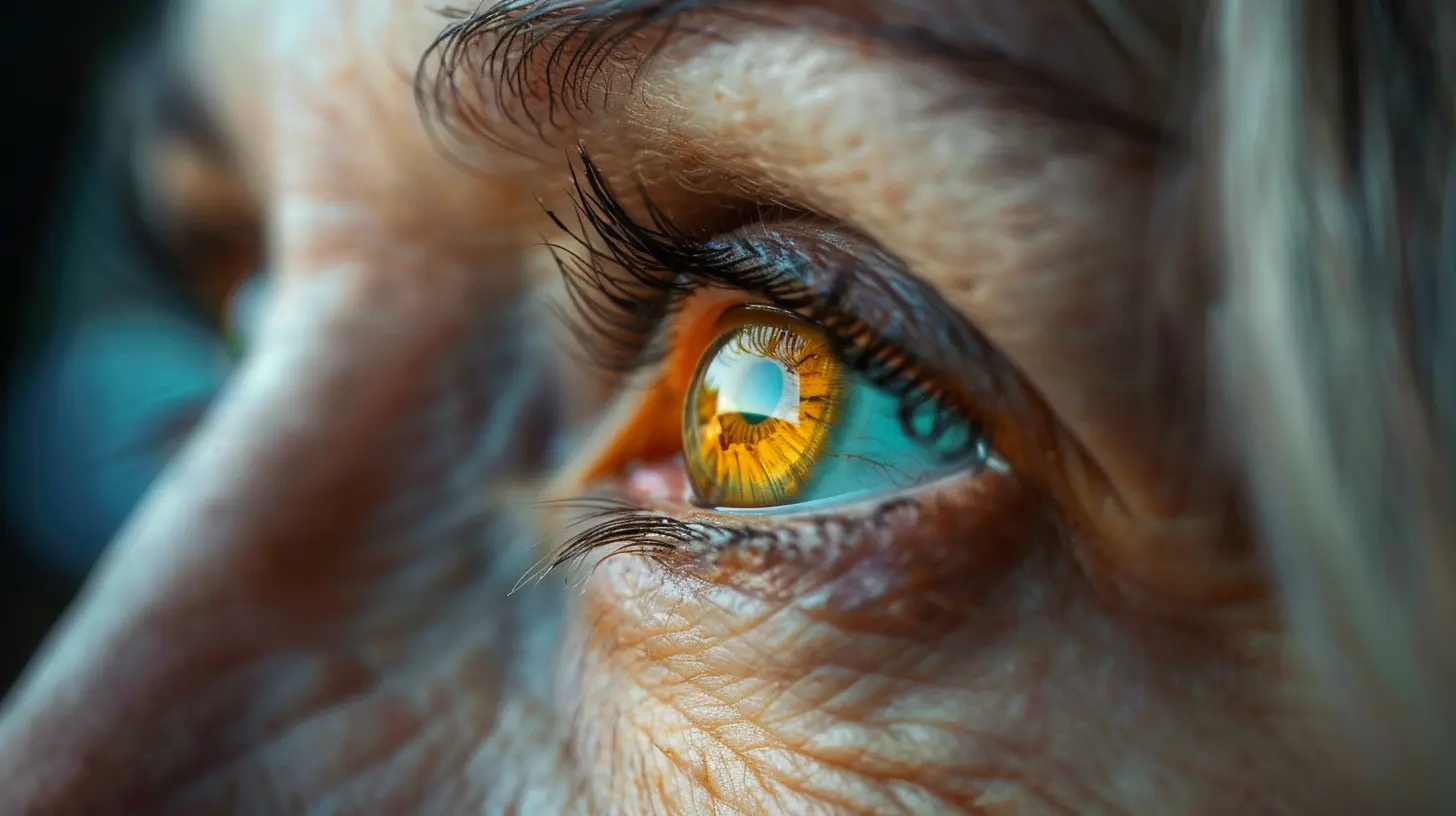
👁️ First Things First: Why Does Vision Go South With Age?
So, what exactly is going on in there? Think of your eyes like a top-of-the-line DSLR camera. Over time, the parts wear out a little: the lens gets cloudy (hello, cataracts), the focus mechanism slows down (presby-what-now?), and sometimes the sensor behind it (a.k.a. the retina) might start sending mixed signals.Here are some common age-related eye changes:
- Presbyopia: That’s just fancy talk for “your arms aren’t long enough to read the menu anymore.”
- Dry Eyes: Because apparently, your tear glands also get lazy with age.
- Glaucoma: Pressure builds up like steam in a kettle. Only this kettle can lead to vision loss.
- Cataracts: Your eye lens starts looking like it’s been fogged up during a hot shower.
- AMD (Age-Related Macular Degeneration): The retina’s central area takes a hit—goodbye sharp vision, hello fuzzy faces.
But don’t freak out yet—there’s plenty you can do to keep those baby blues (or browns, greens, or hazels) sharp.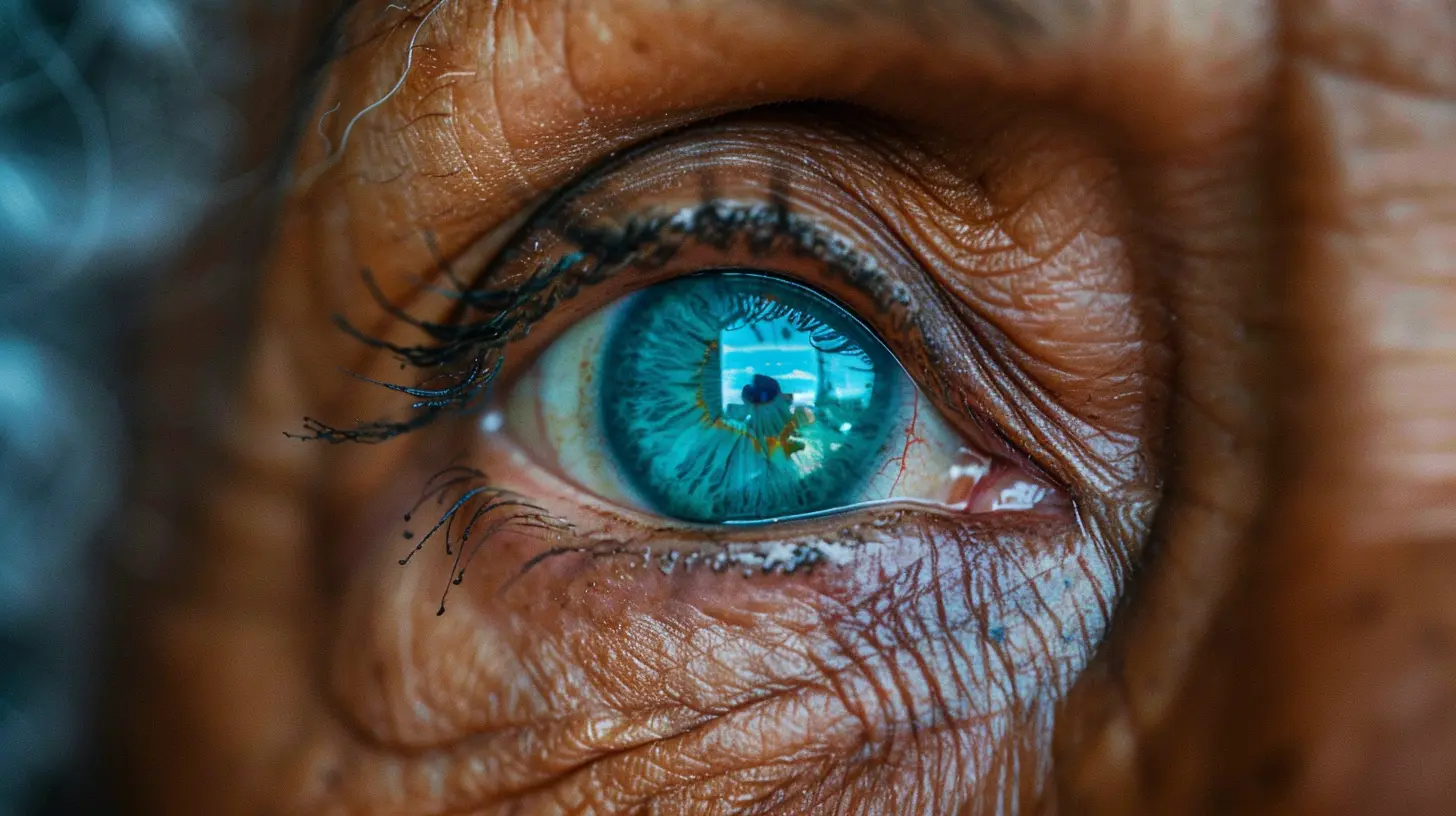
🥕 Eat Your Way to Eagle Vision
You've probably heard that carrots are good for your eyes. Well, that’s not a myth cooked up by veggie-loving moms. Carrots are rich in beta-carotene, which your body turns into vitamin A—essential for good vision. But carrots aren't the only eye-friendly snack in the produce aisle.Top Eye-Health All-Stars:
- Leafy Greens: Kale, spinach, and collards are loaded with lutein and zeaxanthin—fancy names, but they’re basically sunglasses for your retina.- Eggs: Scrambled, boiled, or poached, eggs pack a punch of lutein AND zinc, which helps ward off AMD.
- Fish (especially fatty ones): Salmon, tuna, and sardines are swimming in omega-3s, which help prevent dry eyes.
- Citrus Fruits: Oranges and lemons boost your vitamin C levels, which fight off age-related eye damage.
- Nuts and Seeds: Almonds, walnuts, and sunflower seeds are chock-full of vitamin E and omega-3s—like trail mix for your vision.
Basically, if it grows from the ground, swims in the sea, or cracks open like Humpty Dumpty, it’s probably good for your eyes.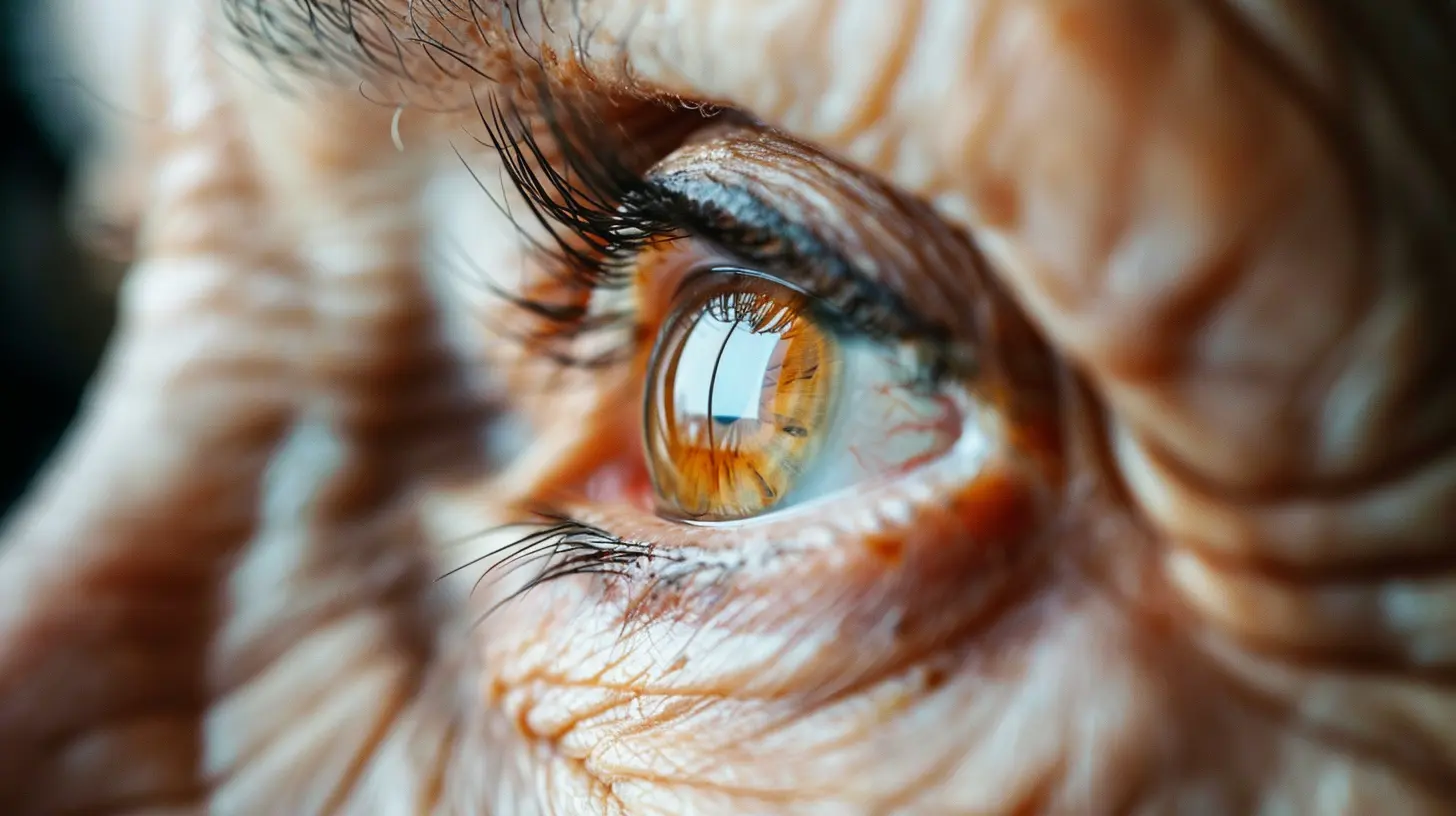
🕶️ Shades On: Not Just for Looking Cool
Spoiler alert: UV rays don't just lead to wrinkles and sunburns—they also quietly sabotage your eyes. They’re like tiny solar ninjas attacking your corneas without warning. That’s why sunglasses are more than a fashion statement; they’re eye armor.What to Look for in Sunglasses:
- 100% UVA & UVB Protection: If the tag says “UV400,” grab it and run to the checkout.- Wrap-Around Style: Because UV rays are sneaky and come in from the side.
- Polarized Lenses: These reduce glare—especially if you’re into driving, skiing, or dramatic walks along reflective lakes.
Yes, even on cloudy days or during winter—your eyes need that SPF-like protection. Think of sunglasses as sunscreen for your eyeballs.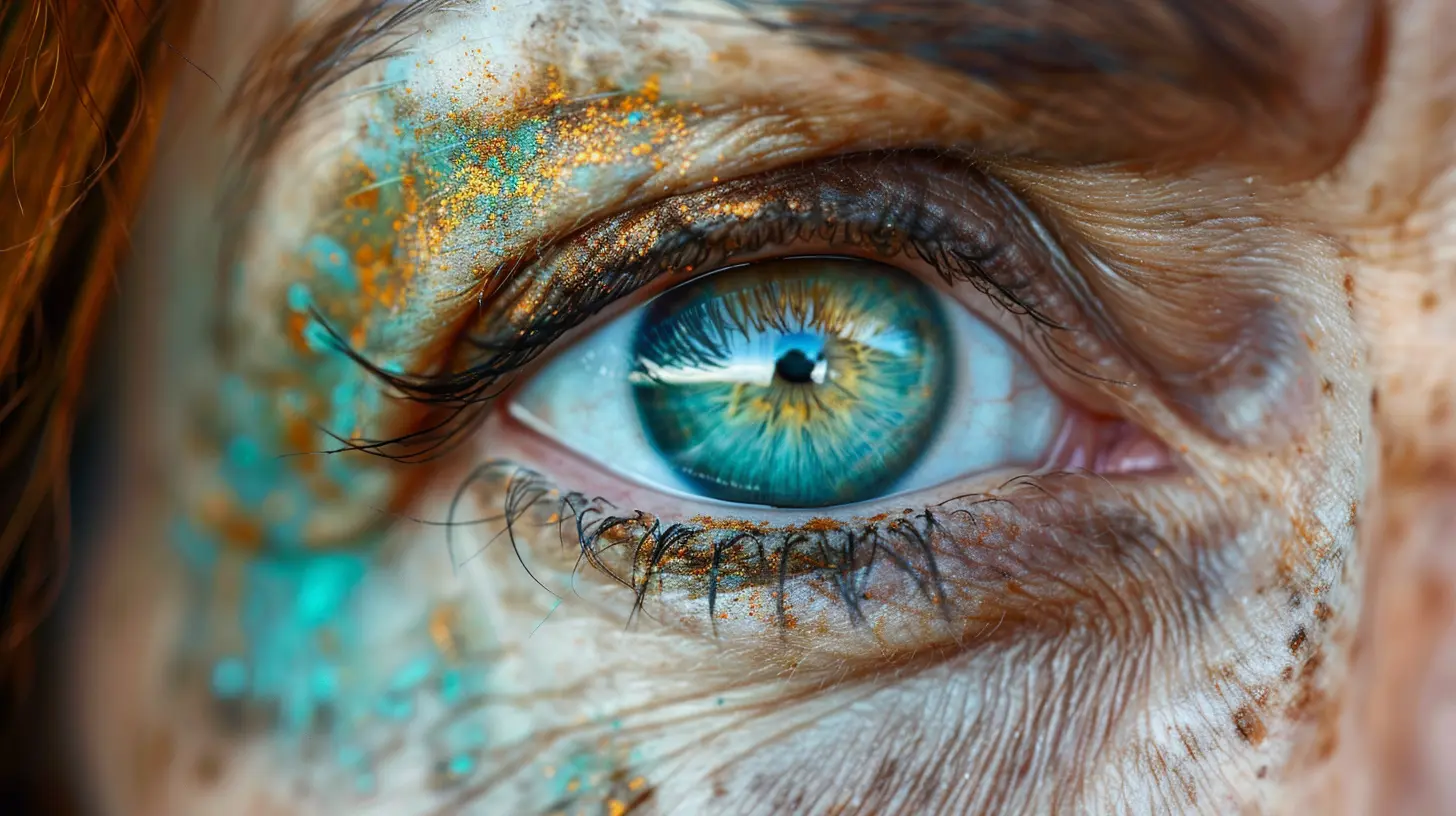
💤 Rest Your Eyes, Not Just Your Feet
We’re all guilty of endless scrolling or "just one more" episode before bed. But your eyes? They’re not built for 12-hour Netflix marathons or TikTok rabbit holes.When your eyes stare at screens all day, they blink less. Less blinking means dry, scratchy eyes. It’s like forgetting to water your plants and then wondering why they look like sad lettuce.
Screen-Saving Tips:
- 20-20-20 Rule: Every 20 minutes, look at something 20 feet away for 20 seconds. Your eyes will thank you.- Blink More: Sounds silly, but you literally need to remind yourself to blink when staring at screens.
- Use Blue Light Filters: Most glasses and devices offer this now. It’s like night cream, but for your corneas.
Oh, and don't forget to sleep! Those 7–8 hours a night are prime time for your eyes to rest and repair. Think of it as spa time for your retinas.
🏃♂️ Physical Activity: Not Just for Your Waistline
Get this—regular exercise actually helps your eyes. Yup, breaking a sweat can reduce your risk of things like high blood pressure, diabetes, and that dreaded eye villain: glaucoma.How, you ask? Because cardio gets your blood pumping, and healthy blood flow means a happy retina. So go ahead, dust off those sneakers. Your eyes want in on the action, too.
No need to run a marathon—brisk walks, dancing in your PJ's, or chasing your dog around the yard work just fine.
🧴 Quit Smoking (Yes, Again)
If your eyes could text you, they’d be sending nonstop messages that say: “STOP SMOKING.” Smoking increases your chance of cataracts, damages your optic nerves, and triples your risk of AMD. It's like inviting a sandstorm into your eyeballs.Need motivation? Imagine watching your favorite movie through a smoke-stained window. Not ideal, right?
Good news—quitting smoking pretty much instantly starts helping your eyes (and the rest of you). So if you needed another reason to butt out, here it is.
👨⚕️ Eye Exams: More Than Just an Excuse to Try on Glasses
Visiting your eye doctor isn’t just about getting new specs that make you look like Clark Kent. Regular exams can actually catch problems long before you notice them.Some eye diseases are sneaky. Glaucoma? No symptoms early on. AMD? That blur creeps in slowly. A routine dilated eye exam is like hiring a detective who specializes in eyeballs.
How Often Should You Go?
- 40s and Up: Every 2–4 years if you’re healthy.- 60+: Every 1–2 years, even if you think you have 20/20 vision.
- Diabetics or High-Risk People: Annually, no negotiating.
Your eyes are too important to play the “if it ain’t broke” game.
🧼 Practice Safe Specs: Cleanliness Is Next to Eyeball-iness
Ever rubbed your eyes with dirty hands? Touched your contact lenses after eating hot wings? Yikes.Here’s a not-so-fun fact: your eyes are playgrounds for bacteria. It's basically spring break for germs if you’re not careful.
Eye Hygiene Habits You Need... Like, Yesterday:
- Wash your hands before touching your eyes or lenses.- Replace eye makeup every 3 months. Yes, even that expensive mascara.
- Clean your glasses regularly. Those smudges aren’t “personality.”
And if your eyes are itchy, resist the urge to rub them like you’re trying to start a fire. You’re not a caveman. Use eye drops instead.
👓 Reading Glasses: Embrace the Look
If you find yourself holding books at arm's length like you’re sword-fighting invisible villains, it might be time for reading glasses. Don’t worry—it’s not a sign of defeat, it’s a rite of passage.Own it. Reading glasses can be stylish, fun, and hey, you can finally read the fine print without cursing.
You wouldn’t skip using a flashlight in a dark room, right? Then why strain your eyes when a simple pair of magnifiers can do the job?
🧠 Your Brain and Your Eyes: BFFs for Life
Last but not least, remember your eyes and brain are besties. They’re constantly working together behind the scenes like the world's most efficient tag team.So keep your brain healthy too. Do crosswords, try a new hobby, and eat brain-boosting foods. A sharper brain means quicker visual processing, better coordination, and a smug feeling when you beat your grandkid at Memory.
🎉 Final Thoughts: Aging Eyes Deserve TLC
Getting older doesn’t have to mean surrendering your eyesight. With the right food, habits, and a touch of sass, you can keep your vision strong well into your golden years.Wear those sunglasses like a rockstar, snack like a rabbit, and go to your eye doctor like it’s a spa day. Take care of your eyes now, and your older self will be squinting with joy (but, like, metaphorically).
So go on—blink, snack, rest, and repeat. Your future eyeballs will thank you.
all images in this post were generated using AI tools
Category:
Healthy AgingAuthor:

Sophia Wyatt
Discussion
rate this article
1 comments
Henry McNeil
As we age, prioritizing eye health through regular check-ups, proper nutrition, and UV protection is essential for maintaining vision and preventing degeneration.
August 17, 2025 at 3:11 AM

Sophia Wyatt
Absolutely! Prioritizing eye health is crucial for preserving vision as we age. Regular check-ups, a nutritious diet, and UV protection play key roles in preventing degeneration. Thank you for highlighting this important aspect!
